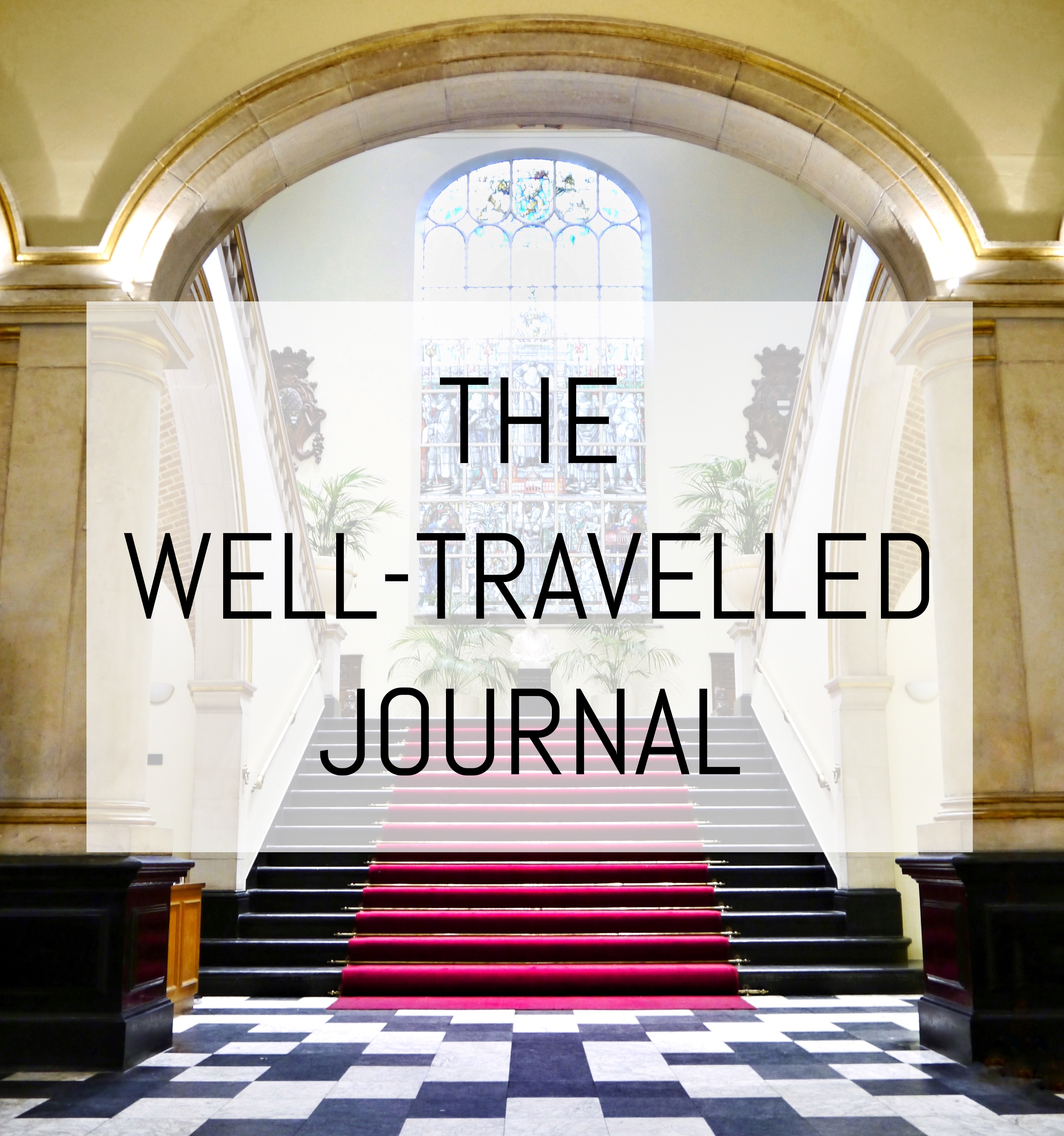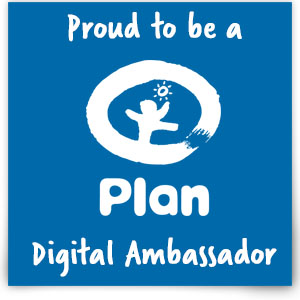Travel and Tourism as a form of Public Diplomacy
Alongside my love of travelling, another interest of mine is learning about international relations and cultural relations. In my second, third and fourth years of university I took an extra module in IR to improve my understanding of this field. I studied at the London School of Economics Summer School (a full 15-credit course on Understanding Foreign Policy: the diplomacy of war, profit and justice), I studied International Institutions during my Erasmus semestre at the University of Córdoba in Spain and I also took a 15-credit module in The Challenges of World Politics in the 21st Century during my fourth year at the University of Exeter.
Since then I’ve been keeping up-to-date through reading, and the latest book I read threw up the interesting concept of Public Diplomacy and the role that the travel and tourism industry plays in this. For anyone who isn’t sure what the term means, here’s a definition of Public Diplomacy:
“PUBLIC DIPLOMACY deals with the influence of public attitudes on the formation and execution of foreign policies. It encompasses dimensions of international relations beyond traditional diplomacy; the cultivation by governments of public opinion in other countries; the interaction of private groups and interests in one country with those of another; the reporting of foreign affairs and its impact on policy; communication between diplomats and foreign correspondents; and the processes of inter-cultural communications.”
 One good example that Elizabeth Becker gives in her book ‘Overbooked: the Exploding Business of Travel and Tourism‘ is that of the American tourists arriving in France after the end of the Second World War. The USA was ploughing money into Europe, via the Marshall Plan, with the aim of helping to rebuild these war-torn countries and thus prevent a repetition of the circumstances and economic instability that enabled a fascist like Hitler to gain power in the first place. At the same time as this was occurring, the government intervened to subsidise transatlantic flights to Europe, and in particular France. Their intention was to make international travel affordable for US citizens and therefore encourage outbound tourism to France. These American tourists were unwittingly to become ‘public diplomats’ and representatives of the US abroad. Not all began smoothly, with language barriers and cultural differences initially a problem (hence why the French are stereotypically perceived by foreigners to be arrogant), but with time natural ties and understanding grew between the citizens of both countries.
One good example that Elizabeth Becker gives in her book ‘Overbooked: the Exploding Business of Travel and Tourism‘ is that of the American tourists arriving in France after the end of the Second World War. The USA was ploughing money into Europe, via the Marshall Plan, with the aim of helping to rebuild these war-torn countries and thus prevent a repetition of the circumstances and economic instability that enabled a fascist like Hitler to gain power in the first place. At the same time as this was occurring, the government intervened to subsidise transatlantic flights to Europe, and in particular France. Their intention was to make international travel affordable for US citizens and therefore encourage outbound tourism to France. These American tourists were unwittingly to become ‘public diplomats’ and representatives of the US abroad. Not all began smoothly, with language barriers and cultural differences initially a problem (hence why the French are stereotypically perceived by foreigners to be arrogant), but with time natural ties and understanding grew between the citizens of both countries.
No longer was diplomacy restricted to the reception rooms of embassies in Paris or Washington D.C., it was now present in every area of society. Or at least in those areas of society touched by tourism. As a result of efforts like this the two countries built a firm relationship. The French made more of an effort to learn English, the Americans adopted the French language in their classrooms and told their compatriots back home in the US of the beauty and elegance of France, and this set the foundations for a healthy tourism industry in France that shows no signs of abating. I’m a strong believer that it is strong relationships that make the world go round and so the concept of actively fostering public diplomacy initiatives makes complete sense to me. If you can positively influence a foreign public’s opinion of your country, then you can more easily influence their foreign policy-makers’ decisions regarding your country.
Another excellent example of this is the European Union’s efforts to unite and integrate the citizens of its member states. One important element of the EU is the ‘Freedom of Movement’ that allows EU citizens to travel, live, work, retire, etc. in any other EU member state. But along with this freedom you also need to give EU citizens the motivation to move and travel abroad. It’s a popular initiative but only once you appreciate it. The Erasmus programme is one such of the EU’s initiatives to promote freedom of movement. For example, Brits notoriously don’t take advantage of their freedom of movement in Europe beyond a one-week holiday. Very few Brits move abroad with Erasmus to work/study, so they don’t experience nor appreciate this advantage of belonging to the EU. (The debate on UK membership of the EU is a complicated one, but I do believe that a lack of UK integration and mobility has lead to the current anti-EU sentiment).
However someone like myself, a language student, who has directly benefited from the EU’s freedom of movement policy by moving, living, working and studying abroad for prolonged periods of time with the Erasmus programme, is very pro-EU and believe the UK needs to stay inside the EU. By creating the Erasmus programme, which funds 250,000 young people to move around Europe every year, the EU is encouraging integration through public diplomacy and nurturing a generation of truly European citizens. I myself feel a strong sense of European identity, alongside my British identity.
“Some academics have speculated that former Erasmus students will prove to be a powerful force in creating a pan-European identity. The political scientist Stefan Wolff, for example, has argued that “Give it 15, 20 or 25 years, and Europe will be run by leaders with a completely different socialisation from those of today”, referring to the so-called ‘Erasmus generation’.”
And how do you truly nurture a future generation of Europeans? The child of two EU citizens with different nationalities won’t have a single strong national identity. Instead they will consider themselves European. By encouraging people to move around Europe at their will, marrying and starting families with any EU nationality they like, the next generation of children will be more multi-cultural than ever before and will help to solidify the union. I find this whole subject area fascinating, to think of the phenomena we take part in without consciously knowing.
I have somewhat strayed from my original focus on the travel industry’s role in public diplomacy. (The EU’s use of public diplomacy is just too interesting a case to have excluded.) Another related field to public diplomacy is reputation management, which is effectively branding and comms. Seen for decades in corporate companies and product marketing, branding is now extended to tourist destinations and even whole countries. On a city- or region-scale it is known as ‘place branding’ and is usually undertaken by a local tourist board. But on an international level it is known as ‘nation branding’ and is more and more the responsibility of the national government.
While an organisation like Visit Britain may focus on driving inbound tourism, the idea of nation branding is a holistic approach to reputation management in every sense. The UK’s latest ‘re-brand’ is via the government’s ‘Britain is GREAT‘ campaign above, which “aims to promote the UK internationally as a GREAT place to visit, study and do business”. Of these three pillars, the emphasis is on business, as a country’s ‘brand’ can also drive foreign investment and boost exports. For proof, just look to the decades-old but still effective ‘Made in Italy’ branding campaign. Have you ever lusted over Italian leather, Italian fashion, an Italian car, Italian food, an Italian holiday? That is all a result of clever branding. Italy’s nation brand screams high-quality and la dolce vita, which boosts exports, injects foreign money into the country and projects a certain corresponding reputation abroad.
I don’t know about you but I find it fascinating. Take a look at the British Council’s blog which has just published an interesting article on young foreigners’ perception of the UK, which analyses what ingredients go into making a country attractive. I’ve also just started reading Melissa Aronczyk’s book ‘Branding the nation: the Global Business of National Identity‘ to get more insight into the subject.













Reblogged this on Worldly Minded and commented:
Here’s a post that looks at one way of gaining intercultural skills: travel. The Travel and Tourism Industry has huge benefits for the not only the individual undertaking the travel, but also for the reputation of their country and for that country’s international relations with citizens of other nationalities. Here’s a look a the role of travel in the arena of public diplomacy.
LikeLike
Loved this post, Virginia! My degree was in International Relations, so combined with my travel obsession, this sort of stuff fascinates me too!
LikeLike
Yes I do wish I had had more International Relations modules as part of my degree. I took them where possible, but I would have liked to study it more…
LikeLike
…See, THIS is why more young people should travel/live abroad–to open up perspectives and build personal, transnational connections with others!!…
LikeLike